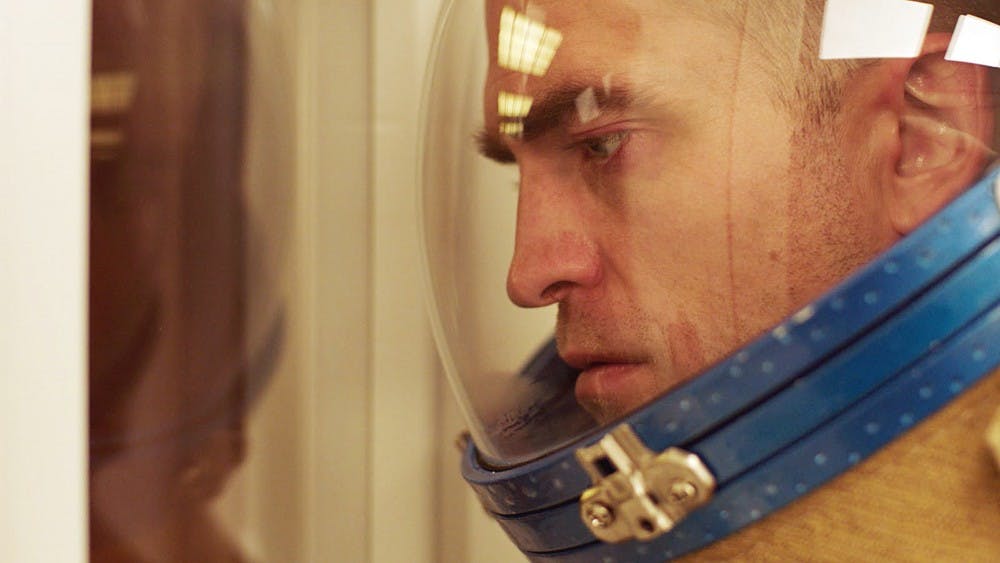In the midst of "High Life," the strange, elliptical and altogether otherworldly new film by legendary French filmmaker Claire Denis, a stern Juliette Binoche remarks that "there is nothing to fear." She's wrong.
The movie, which follows a team of death row inmates corralled onto an interstellar prison and sent hurtling toward a black hole in the name of science, is not overtly scary. In spite of the great many horrors — psychological, metaphysical, existential, material, you name it — that unfold over the course of its increasingly bizarre narrative, it’s not overtly much of any one thing at all. And there, in the tonally hazy surrealism of its narrative lies its quiet brilliance. It is at once chilling, thrilling, nightmarish and undeniably beautiful.
“High Life” is a psychosexual space oddity that continues the lineage of cerebral sci-fi classics like Stanley Kubrick’s “2001” and Andrei Tarkovsky’s “Solaris.” But while Denis’ film is, like those before it, a space-bound contemplation of the human condition, it also occasionally recalls Jonathan Glazer’s earth-bound science fiction fantasia, “Under the Skin,” a similarly dreamlike mixture of eroticism and surreality about the exploits of an alien seductress.
At the film’s beginning, a grizzled Robert Pattinson performs maintenance on a ship drifting through space, communicating over radio with an infant onboard. The camera glides through empty, gloomily lit halls like a ghost. Shots of a garden punctuate the desolate mood, the only sign of life beyond father and infant in this quiet oblivion.
The framing of the narrative, which relegates the chilling and violent meat of the story to prolonged flashbacks, foregrounds the tenderness of the pair’s relationship. Theirs is a love that occupies this desolate space, a hope underscoring torment and abandonment.
Pattinson’s subdued performance, as excellent as any of the former “Twilight” star’s recent roles, is vital to the movie’s emotional undercurrents, his face an expressive landscape of repressed pain and quiet sensitivity. Alongside him, equally stellar, is a slew of talented performers including Juliette Binoche as a tormented and controlling mad scientist, Mia Goth as a feisty, ferocious prisoner and newcomer Jessie Ross in a small but heartachingly tender role.
For the most part, Denis plays coy with information, doling out exposition in short, grainy flashbacks to a drab Earth and more substantive sequences that chronicle mounting tensions and eventual disaster on the ship. It’s those flashbacks that provide much of the movie’s narrative heft and thematic intricacy. Immediately, crew members clash with one another in a frenzy of psychological and occasionally physical brutality.
There are sequences of violence and bodily harm that feel straight out of a horror film, yet Denis’s sensibilities and preoccupations are never bound to something so simple. She’s less fascinated with the inherent horror of the scenarios she’s devised — though there are a number of utterly chilling set pieces that might suggest the opposite — than with the underlying potential of the premise as a window into the soul.
In firing this crew of misfits into space, she’s set her sights on the deepest, most vital facets of the human condition.
“High Life,” despite its science fiction trappings, is a powerfully introspective and often chilling glimpse at the human soul. For something so outwardly cold, brutal and reserved, it is both overwhelming and deeply hopeful in the most powerful and rewarding ways. Denis’ filmmaking is ethereal and sublime. What she’s crafted here is an unshakable, provocative and poetic journey through the whole of the human experience and a powerful contemplation of life on the brink of nothingness.
"High Life" is now in a limited release nationwide. It will screen at the IU Cinema June 13th and 14th.




